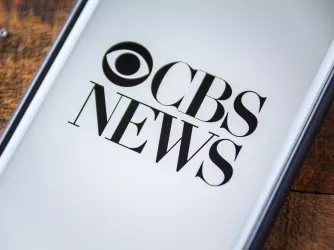Table of Contents
Michigan State University Drops ‘Spam’ Charges Against Student Critic of Administration
In a significant victory for freedom of expression on campus, Michigan State University (MSU) has withdrawn "spamming" charges against a student government leader who criticized the MSU administration's plans in an e-mail to professors. MSU junior Kara Spencer had carefully selected and e-mailed eight percent of MSU's 5,000 faculty members, encouraging them to express their views about proposed changes to the academic calendar. In response, she was found guilty of spamming, but the charges were withdrawn after she appealed—and after FIRE and the Electronic Frontier Foundation (EFF) took up her case.
As Greg states in today's press release:
Michigan State did the right thing by withdrawing its bogus 'spam' charges against a student leader who was simply exercising her rights. Now MSU needs to suspend its unconstitutional spam policy so that students like Kara cannot be punished for responsibly engaging the MSU community. Of course, FIRE would be happy to advise MSU about pitfalls to avoid while crafting an effective spam policy, but the existing policy must go as soon as possible.
Indeed, MSU's spam policy is still chilling the speech of over 45,000 students and thousands of faculty members—and almost none of them have been told that the policy will no longer be enforced against them for actions such as Spencer's. The vague, unconstitutional policy prohibits sending unsolicited e-mail to more than about 20—30 recipients over two days without prior permission and bans all such e-mails when they are "personal" or "political."
Spencer's ordeal began last semester when MSU's administration revealed plans to shorten the school's academic calendar and freshman orientation schedule. The controversial plans led members of the University Committee on Student Affairs (UCSA), a committee comprised of students, faculty and administrators, to meet and exchange e-mails in mid-September to construct a formal response. Spencer, a member of the committee, is Association Director of MSU's student government.
On September 14, Spencer told UCSA that she would send individual faculty her own version of its letter. Spencer carefully selected 391 faculty members—roughly eight percent of MSU's faculty—and e-mailed them her version of UCSA's letter, arguing that the proposed changes "will greatly affect both faculty and students alike" and calling for "an inclusive dialogue among members of the University community."
Two days later, MSU Network Administrator Randall J. Hall summoned Spencer to a mandatory "investigation" meeting. The next day, Hall alleged that Spencer had violated as many as five MSU policies by sending what he called unauthorized "spam." After Spencer requested a hearing before the Student-Faculty Judiciary, FIRE wrote to MSU President Lou Anna K. Simon, calling on her to end the unconstitutional investigation. MSU chose to proceed with the hearing, however, and Simon erroneously claimed that the policy was acceptable because it was "content neutral."
Despite the fact that her e-mail was timely, carefully targeted, and concerned a campus issue, Spencer was found guilty of violating MSU's "spam" policy. A formal "Warning" was placed in Spencer's file, hurting her chances of obtaining employment or attending graduate school.
In response to the unjustifiable prosecution of Spencer, thirteen civil liberties organizations, led by FIRE and EFF, wrote an open letter to President Simon on December 17 challenging both the policy and its application against Spencer. FIRE also highlighted MSU's absurd prosecution of Spencer in its Inauguration Day letter to President Barack Obama asking him to help fight campus speech codes.
Spencer appealed her punishment earlier this month. In the wake of Spencer's submission of her appeal and the open letter from FIRE, EFF, and other civil liberties organizations, Spencer learned last Thursday that the charges had been "withdrawn by the Complainant(s)." An attorney for Michigan State told FIRE this week that Spencer's warning will be removed from her file and that students in Spencer's position will not be referred for disciplinary action while the university is reviewing the policy. However, Michigan State has so far refused to suspend or revoke the unconstitutional policy, leaving students under the impression that it is still enforced.
As Will stated in our press release, "[E]very day this policy and other unconstitutional policies remain on the books is a day when MSU is abridging the rights of over 45,000 students. FIRE and the Electronic Frontier Foundation will be keeping the pressure on Michigan State to ensure that this unconstitutional policy is reformed."
Indeed, until the unconstitutional policy is suspended or revoked, Michigan State will remain on FIRE's Red Alert list of the worst offenders against campus liberty, together with four other schools that remain on our list. In order to protect their rights, we recommend that students avoid MSU, Brandeis University, Colorado College, Johns Hopkins University, and Tufts University.
You can let President Simon know what you think by calling 517-355-6560 or e-mailing presmail@msu.edu.
Recent Articles
FIRE’s award-winning Newsdesk covers the free speech news you need to stay informed.

The FCC's show trial against CBS is a political power play

UPDATE: Another federal appeals court backs academic free speech for public employees

Feds to Columbia: ‘You want $400 million in contracts back? Do this (or else)’
